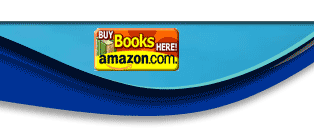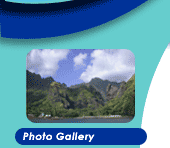Only 475 miles, perhaps more, into a trip that is becoming
more and more
uncertain. I have not wanted to write today because there's not that
much
positive to say and when there isn't, I find it difficult to be creative.
I
must say that for the first time during Voyage II, I am bored. And depressed.
And very tired.
"Have you written about the squalls last night and the torn sails
this
morning?" asked Gunter, having been awakened by the VHF call from
Makoko.
"No," I answered. "I am really affected by all this
doom and gloom."
"Write anyway."
The rain has eased and I go to the cockpit to dry off the seats and
table for
lunch. Perhaps it won't rain again and we can eat outside. I have prepared
a
multi-veggie cole slaw. The rhythmic chop, chop, chop helped ease my
tension
as the squalls continued this morning.
The VHF call from Jean-Claude had started with, "You on Pacific
Bliss are
unfortunate enough to be paired with the most unlucky boat in the Marquesas
and
Tuomotus-no, the most unlucky boat in all of the South Pacific. We feel
so
sorry for you."
"Don't," I had answered. "It doesn't help. We're staying
with you. You are
our buddies and our friends. How's the sail repair going?"
"Slow. We have about 70cm to stitch by hand. And the tear is,
of course, not
uniform along the seam. We need to take our time and make it strong.
Claudie,
of course, is sipping pastis while she works, so that it doesn't hurt
so much."
(The ongoing jokes referencing pastis had begun after a buddy boat
incident in
Mexico during our Voyage I, but that's another story.)
"Well, we'll join you with a chilled white wine for lunch. We're
just sitting
here bobbing, I joked back. "Should we douse our main? It's just
flopping."
"No, we need to make every bit of progress we can, even with our
Genoa down We
are making 3 knots, after all."
"OK. We'll leave it up. Feels like we're barely moving,"
I said.
"God must have decided to teach me patience on this voyage. It
will not go
down in history as one of our better passages."
"Nor ours. However, I did notice, Jean-Claude, that patience is
not one of
your better virtues."
"Never has been." That drew a laugh. We knew from sailing
many a mile with
Makoko that Jean-Claude always liked to push to the limit. As
they say, one
boat going from point A to point B is a voyage. Two boats is a race.
Automatically. No matter what anyone says or agrees to.
At 1030 this morning, we had witnessed a most terrible sight: one of
Makoko's
three sails, her largest, was flapping in the wind uncontrollably, part
of it
falling into the sea. Their Genoa had ripped, and they do not have a
replacement. So while Pacific Bliss is missing just a spinnaker,
Makoko is now
missing their "ballooner," their transmission, and now their
largest sail-the
equivalent of the main on a ketch.
So, for the third time on this passage, we are basically stopped running
in the
middle of the day-waiting for Makoko. It had been the final encore
to a
miserable night.
The night had fallen after a rough afternoon, trying to hold Pacific
Bliss
back-she hates that-with a second reef in the main and one in the jib.
She was
getting even with us for holding her reins that tight-she always does.
The
ride she gave us was most uncomfortable.
I remember how I felt going into the 1800-2100 night watch. There
was no
sunset at all. Just dreary, grey light fading to nothingness. There
had been
a cradle moon, low on the horizon, managing to break through the western
clouds
for a few minutes here and there, but that was it. No stars. Flashes
of
sickly yellow lightening ahead. My stomach was churning again.
After 1930, I was alone in the salon, the air thick with humidity,
waiting for,
yet dreading, the squalls to come. They came, but after my watch, when
Gunter
was on. He called on Armin to help. Prior to the first squall, they
doused
all sails. Then they had to put them all up again. Prior to the second
one,
Gunter got smart. He sat inside at the dry nav station like a pilot.
Whenever the wind direction changed, he set Ray (our autopilot) to whatever
direction gave Pacific Bliss a 45º apparent wind angle against
the main. It
worked, because the wind, after the squall, always tended to come back
to the
WNW direction. Even so, with one squall after another, watches became
very
hard work.
I slept fitfully, knowing that I would be back on watch from 0300-0600.
And,
sure enough, I experienced more of the same. I could anticipate and
follow
each squall's progress on the radar. I followed Gunter's technique and
I
stayed dry. But the tension caused by winds and the driving rain, and
the
focus that such a complex method of sailing entailed, had me close to
tears.
By 0500, Gunter had recovered enough to join me, and I felt better for
the
company. We watched two more squall lines on the radar, but they didn't
drop
more rain. The system had temporarily fizzled. By 0600, we wiped off
the
soggy helm seat, and sat there together. And from 0630 to 0830, I crashed.
journal72.html
|











